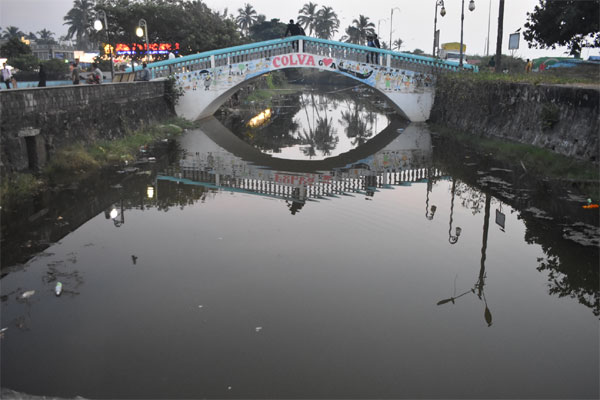Daijiworld Media Network - Margao
Margao, Aug 9: After a 14-year legal battle, the High Court has officially disposed of the Public Interest Litigation (PIL) filed by the Colva Civic and Consumer Forum (CCCF), which raised concerns over sewage discharge by commercial establishments into Colva creek. The Court expressed satisfaction with the steps taken by the Goa State Pollution Control Board (GSPCB) to curb marine pollution in the region.
The PIL, originally filed in 2011 by CCCF Secretary and social activist Judith Almeida, spotlighted the widespread practice of hotels, restaurants, and beach shacks discharging untreated sewage either directly into the sea or indirectly via drains leading to the creek. The Colva creek, which stretches over a kilometre before merging into the Arabian Sea, had become a focal point for pollution concerns.

In response to the PIL and the growing environmental issues, authorities commissioned a 7.5 MLD Sewage Treatment Plant (STP) in Colva, intended to serve local commercial units and residents. However, despite the infrastructure, stakeholder compliance remained inconsistent, with many establishments slow to connect to the public sewerage system.
The High Court noted these developments and, based on reports submitted, said it was satisfied with the measures implemented by the GSPCB, including inspections and follow-up actions. The Court accepted a categorical statement from GSPCB’s Counsel, which confirmed that nearly all commercial units along Colva beach had been inspected and were covered in the latest compliance report.
As part of its ruling, the Court acknowledged a detailed status report outlining sewage disposal practices of 43 commercial units across Colva, Vanelim, Sernabatim, and Gaundalim. It noted that these businesses had been formally asked to apply for connections to the sewage system.
The Court also recorded that the STP was operational, treating waste from public toilets and that treated water was being reused in line with environmental guidelines.
Importantly, the Court clarified that petitioners would retain the right to raise future grievances directly with the GSPCB, should new violations emerge.
While the PIL has now been closed, environmental activists maintain that on-ground implementation and full compliance will need ongoing scrutiny to ensure that Colva’s fragile ecosystem is truly protected.